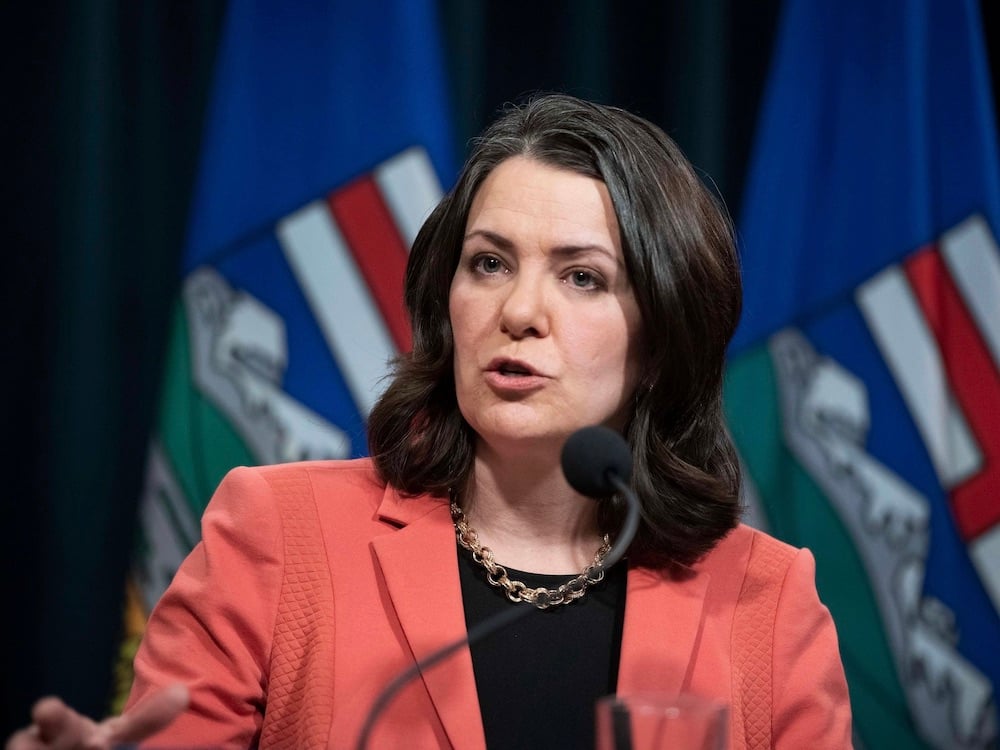What did Alberta Premier Danielle Smith mean in Calgary this week when she said of her plans for health care that “we’re just going to keep on making… incremental changes; I can’t stop doing reform because the federal government doesn’t want to partner with us”?
Here’s my translation: “I won’t stop trying to privatize health care a bit at a time just because the federal government opposes privatization, but I still want them to pony up the cash.”
Smith is the noisiest member of a group of premiers who would like the federal Liberal government, committed to supporting public health care through funding tools like the Canada Health Act, to pay for the Conservative plan to dismantle Canada’s most widely supported public institution through stealthy but relentless privatization.
A key message she would obviously like us all to take onboard is that Ottawa is being unreasonable and interfering with provincial jurisdiction by insisting money it provides for health care from Canadians' federal taxes through the Canada Health Transfer be used as voters obviously intended when they elected Prime Minister Justin Trudeau’s Liberals.
That is, to keep health care public.
The United Conservative Party position sounds a bit like calling a Good Samaritan a creep because he offers to buy a hungry person a sandwich but is reluctant to pay for a shot of gin to go with it.
To restate the obvious, the Canada Health Transfer is intended to uphold the principles of the Canada Health Act. And the purpose of the Canada Health Act is to “provide comparable treatment for all Canadians, regardless of where they live.”
The type of health-care “reforms” promoted by Smith and the United Conservative Party, and by other Conservative premiers, undermine the principle of comparable treatment for all Canadians, including within their own provinces.
Under the circumstances, Ottawa can hardly be faulted for insisting on some accountability from the provinces about how federal health-care money is spent before it hands over the cash.
This is the issue at the heart of the ongoing battle between Ottawa and the provinces over increases to the Canada Health Transfer that almost everyone acknowledges are needed.
Ottawa is saying, in short, that it won’t fork over billions to the provinces to make health care better if Conservative leaders insist on doing things to make it worse.
“The provinces have a lot of latitude to make changes in their health-care system but they have to stay within the lane of the Canada Health Act and our national medicare system if they want to receive federal money,” explained Stephen Staples, national policy director of the Canadian Health Coalition, in an interview with Global News.
Conservative political leaders, of course, dispute the argument that privatization of medical services will make things worse — we’ve all heard the “publicly financed, privately delivered” promise. The evidence suggests, though, that it is not particularly credible.
Be that as it may, our democratically elected federal government is not being unreasonable by insisting it won’t bankroll policies it believes would be harmful to suit a group of provincial politicians devoted to its removal from office.
Which leads us back to Smith’s suggestion her UCP government might be prepared to go ahead and carry out its “reforms” to health care whether or not the feds approve, with or without a funding deal with Ottawa.
Some reporters at her Calgary news conference clearly interpreted what Smith was saying as meaning she might indeed be prepared to move ahead with big changes to the public health-care system even if that meant the federal government stopped the payment of Canada Health Transfer funds to Alberta.
But it’s not clear — probably intentionally — whether that’s what she actually meant.
When she says it would be great if the federal government “comes to the table with more funding support, but we’re not going to stop with the reforms that we’re doing,” she certainly won’t mind if opponents of public health care interpret that as meaning she wants to take the advice of the notorious 2001 Firewall Letter that Alberta should pull right out of the Canadian national public health-care system.
But when she provides only examples of reforms that stay within the Canada Health Act’s lane, as Staples put it, she also won’t be upset if the rest of us interpret that as meaning there’s nothing for us to worry about.
The Firewall Letter was the separatist manifesto penned 22 years ago by a half dozen far-right ivory tower ideologues at the University of Calgary, including the young Stephen Harper, later prime minister, and the not-so-young Ted Morton, the worst premier Alberta never had. When they mailed it to premier Ralph Klein, he wisely trashed it.
Among its list of bad ideas, most of which cropped up in Smith’s campaign last year to lead the UCP, was this: “Resume provincial responsibility for health-care policy. If Ottawa objects to provincial policy, fight in the courts. If we lose, we can afford the financial penalties that Ottawa may try to impose under the Canada Health Act.”
In real life, the implications of actually doing this could be pretty severe, among them transition to full-blown U.S.-style privatization, with the requirement for everyone to have high-cost and health-condition-limited private health insurance or risk bankruptcy or death. As in the U.S., the cost would ultimately end up being higher than those of our current single-payer system of health insurance.
But based on what she’s been saying for years, in and out of politics, none of that would particularly trouble Smith.
On the other hand, she’s smart enough to understand the impact it would have on her support in the polling booth.
So for the time being, we can expect the UCP to keep doing the dance of the seven veils as they try to figure out how to get someone else to bring them the metaphorical head of public health care on a platter.
The Liberals, particularly considering the threat of the NDP abandoning their confidence and supply agreement, are not likely to help them out. ![]()

















Tyee Commenting Guidelines
Comments that violate guidelines risk being deleted, and violations may result in a temporary or permanent user ban. Maintain the spirit of good conversation to stay in the discussion.
*Please note The Tyee is not a forum for spreading misinformation about COVID-19, denying its existence or minimizing its risk to public health.
Do:
Do not: